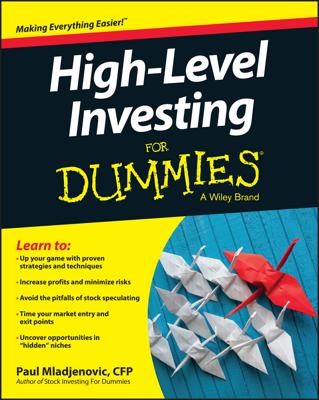Stocks with higher-than-average dividends are known as income stocks. Investors rely on these for regular income, whether in retirement or as a supplement to their earned income.
Advantages of income stocks
Income stocks tend to be among the least volatile of all stocks, and many investors view them as defensive stocks. Defensive stocks are stocks of companies that sell goods and services that are generally needed no matter what shape the economy is in. (Don’t confuse defensive stocks with defense stocks, which specialize in goods and equipment for the military.)
Food, beverage, and utility companies are great examples of defensive stocks. Even when the economy is experiencing tough times, people still need to eat, drink, and turn on the lights. Companies that offer relatively high dividends also tend to be large firms in established, stable industries.
Some industries in particular are known for high-dividend stocks. Utilities (such as electric, gas, and water), real estate investment trusts (REITs), and the energy sector (oil and gas royalty trusts) are places where you definitely find income stocks. Yes, you can find high-dividend stocks in other industries, but you find a higher concentration of them in these industries.
Disadvantages of income stocks
Before you say, “Income stocks are great! I’ll get my checkbook and buy a batch right now,” take a look at the following potential disadvantages. Income stocks do come with some fine print.
Income stocks can go down
Income stocks can go down as well as up, just as any stock can. The factors that affect stocks in general — politics, economic trends, industry changes, and so on — affect income stocks, too.
Fortunately, income stocks don’t get hit as hard as other stocks when the market is declining, because high dividends tend to act as a support to the stock price. Therefore, income stocks’ prices usually fall less dramatically than other stocks’ prices in a declining market.
Interest-rate sensitivity
Income stocks can be sensitive to rising interest rates. When interest rates go up, other investments (such as corporate bonds, U.S. Treasury securities, and bank certificates of deposit) are more attractive. When your income stock yields 4 percent and interest rates go up to 5 percent, 6 percent, or higher, you may consider selling it. As more and more investors sell their low-yield stocks, the prices for those stocks fall.
Another point to note is that rising interest rates may hurt the company’s financial strength. If the company has to pay more interest, that may affect the company’s earnings, which in turn may affect the company’s ability to continue paying dividends.
Dividend-paying companies that experience consistent falling revenues tend to cut dividends. In this case, consistent means two or more years.
The effect of inflation
Although many companies raise their dividends on a regular basis, some don’t. Or if they do raise their dividends, the increases may be small. If income is your primary consideration, you want to be aware of this fact.
If you’re getting the same dividend year after year and this income is important to you, rising inflation becomes a problem. Because inflation means your costs are rising, inflation shrinks the value of the dividend income you receive.
Fortunately, studies show that in general, dividends do better in inflationary environments than bonds and other fixed-rate investments. Usually, the dividends of companies that provide consumer staples (food, energy, and so on) meet or exceed the rate of inflation.
Uncle Sam’s cut
The government usually taxes dividends as ordinary income. Higher tax rates on dividends are being considered so find out from your tax person whether this is (or will be) an issue for you.

